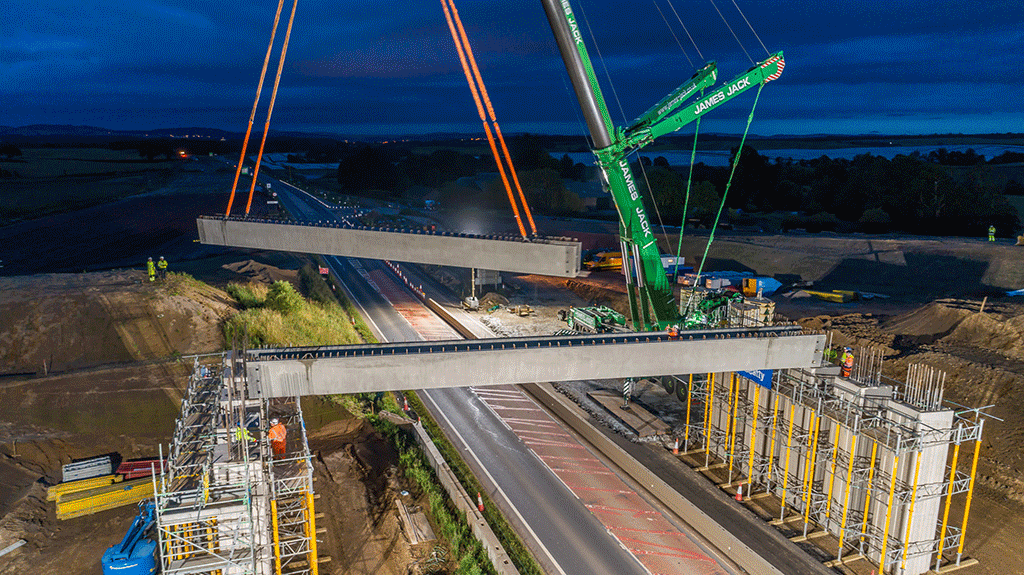
Business leaders in Scotland have urged the government to follow through with its commitment to upgrade the A96 and A9 and ignore calls to abandon the investment in response to the climate emergency.
They have written to cabinet secretaries Derek Mackay MSP and Michael Matheson MSP, to counter calls for the Scottish government to shelve investment in the two key routes to the North and North-East ahead of the next Budget.
The Scottish Chambers of Commerce (SCC) said everyone supported the need to reduce emissions, but a balance had to be reached to ensure the country continued to grow its economy.
Dr Liz Cameron, SCC chief executive, said: “The last thing business needs right now is for any major U-turns, particularly with our transport infrastructure.
“One example is the critical importance of urgently fulfilling the policy promise of upgrading the A9, and the A96.
“This is not a luxury but a necessity. Any calls on the government to consider reversing this decision must be rejected. [The A9] is not only about increasing much needed capacity, it is Scotland’s longest trunk road and gateway to the Highlands, and the A96, a key transport corridor essential for Scottish exports, must be taken forward to ensure the future of rural communities and their economies.”
Councillor Allan Hnderson, chair of regional transport partnership HITRANS, said: “Addressing inadequate road infrastructure in the North of Scotland should not be a casualty at the hands of those who have far greater transport choices.”
And Fraser Grieve, director at the Scottish council for development and industry, said: “We too often fail to recognise the economic contribution of this region as the home of some of Scotland’s leading exports.
“The reliability of our transport network is vital to continued success and delivering these upgrades, along with other transport enhancements, will support the sustainability and competitiveness of this region.”
Campaigners against the A96 upgrade said it had produced a report showing that dualling the entire length of the road was not supported by traffic numbers and offered low value for money and that the reduction in travel time achieved by full dualling of the A96, in comparison to partial dualling, was only 10 minutes.














